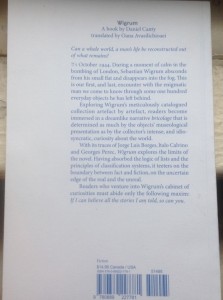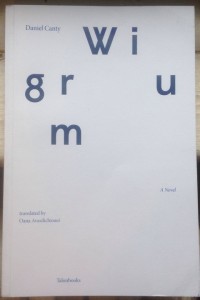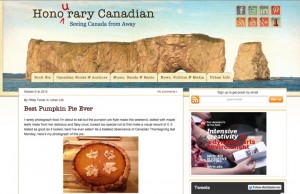Today my #FridayReads is a re-read, prompted by a book discussion during the past week about novels of the American West. It all began seven days ago, with last week’s post in this vein: “#FridayReads, Oct 11–Ben Urwand’s The Collaboration: Hollywood’s Pact with Hitler & Anne Hillerman’s Spider Woman’s Daughter.” I had shared the post in my social networks, including with authors Urwand and Hillerman, and was delighted mid-week when I heard from Ms. Hillerman with a thank you for my piece.* Her new book–a revival of the mystery series written over several decades by her late father, the mystery master Tony Hillerman–though only on sale about a week, had quickly leapt on to the NY Times bestseller list. On the Wordharvest Writers Workshop Facebook page, Anne had linked to an article about books and asked this question:
Craig Johnson’s work [the Sheriff Longmire series] was the subject of an article about Western archetypes. The writer praises Johnson’s Walt Longmire character as a perfect example of the Western hero. Who do you think is the quintessential Western hero in fiction?
In response, I got up from my desk to dig out my copy of a favorite Western novel, The Big Sky, by A.B. Guthrie, Jr., a terrific novel set in the old West. I needed to check the year of publication, to include it in my answer, so I went over to a nearby bookcase where, though it’d been a long time since I took it off the shelf, I knew I’d find my old copy of Guthrie’s modern classic. There, residing between a New Directions edition of Lars Gustafsson’s The Death of a Beekeeper and a Dover Classics copy of H. Rider Haggard’s Ayesha. I quickly found the copyright page in the Guthrie–1947. Then my hand landed between the cover and the book’s first leaf, discovering there an inscription. Hmm, I didn’t remember this book had one. Looking at it, I realized it was to me, written by my brother Joel, who died suddenly in December 2009, age 58. Dated 9/22/72, on what would’ve been my 18th birthday, the note was written in Joel’s still-familiar hand, a firm print that brought with it an instant evocation of his personality and character. Joel wrote:
Phil– 9/22/72
You will like this story and the following two, The Way West and These Thousand Hills. Do not ! read the foreword by Stegner until you finish The Big Sky; he gives everything away. Love, Joel
Over the years I’ve also noticed the way old samples of handwriting from my father Earl or mother Sylvia prompt a strong sense of them. They died respectively in 1992 and 2006. Though Earl’s been gone the longest, his handwriting–also in print, not script except for his signature–still carries all the sweetness of him. My mother’s less legible script is tremulous, bespeaking some nervousness when she sat down to write.
The Big Sky beautifully captures the era of the lone mountain man, as personified in pop culture by the 1972 Robert Redford film, Jeremiah Johnson, which was itself based on a novel, Mountain Man, by Idaho writer Vardis Fisher. Guthrie’s later novels, which Joel also recommended to me in his inscription, cover subsequent epochs–the wagon trains in The Way West and the advent of the first great ranch herds of cattle in These Thousand Hills. The three books are a proper trilogy, with each covering about a twenty-year period of American history. To Guthrie’s trilogy I will also add The Awakening Land Trilogy, a great series by Conrad Richter, made up of The Trees, The Field, The Town, again describing one arc of American history.
By the way, my answer to Anne Hillerman’s good question went like this:
I do like the literary character of Walt Longmire [also a good TV show], but to keep climbing higher up the pinnacle of literary greatness I’d go to A. B. Guthrie’s Boone Caudill from The Big Sky (1947). Also, from history, I want to put in a word for Hugh Glass, true life survivor of a grizzly bear mauling in the 1820s, who’s been a character in fiction as recently as 2001, when I edited Montana writer Michael Punke’s terrific novel The Revenant: A Novel of Revenge.
Thanks to Anne Hillerman, for prompting me to re-read A.B. Guthrie’s fine novel. Here are pictures I’ve taken of all the relevant books in this post. The links to the books above are all ‘live,’ and if clicked on will take you to Powell’s Books of Portland, OR, where you can buy any of them if you wish, with a fraction of the purchase price being returned to me for the upkeep of this website.
* Coincidentally, I also had a pleasant encounter with Ben Urwand, author of The Collaboration: Hollywood’s Pact with Hitler, when I heard him lecture last night at the Wiesenthal Center’s Museum of Tolerance, which I will write about in the week to come.
 #FridayReads, October 25–Grant Lawrence’s The Lonely End of the Rink: Confessions of a Reluctant Goalie. Very excited to begin reading my copy of the new book by my friend, Canadian broadcaster Grant Lawrence, which just landed in my mailbox this afternoon. The book, which chronicles his uneasy relationship with the Canadian national sport, was officially launched last night with an event in Vancouver, BC. Grant loves to meet with booksellers and readers and is one of the hardest working authors I’ve ever observed. On his website you can find details on the extensive book tour he’s taking, with stops in many Canadian cities between now and December 12.
#FridayReads, October 25–Grant Lawrence’s The Lonely End of the Rink: Confessions of a Reluctant Goalie. Very excited to begin reading my copy of the new book by my friend, Canadian broadcaster Grant Lawrence, which just landed in my mailbox this afternoon. The book, which chronicles his uneasy relationship with the Canadian national sport, was officially launched last night with an event in Vancouver, BC. Grant loves to meet with booksellers and readers and is one of the hardest working authors I’ve ever observed. On his website you can find details on the extensive book tour he’s taking, with stops in many Canadian cities between now and December 12.











